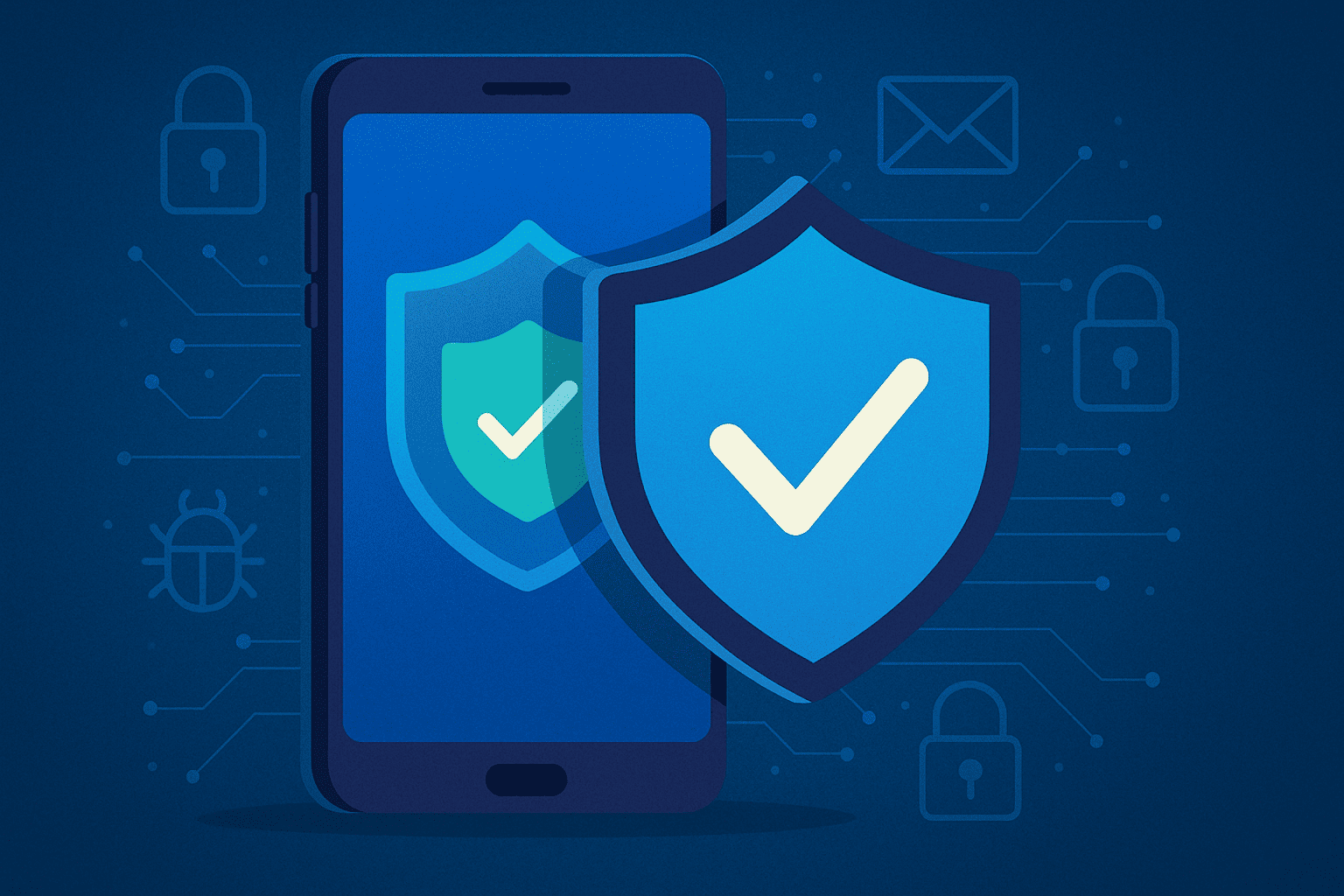Updated on October 29, 2025, by OpenEDR
In 2025, your smartphone is more than a communication tool — it’s your bank, office, and data vault. But with this convenience comes vulnerability. According to Statista, over 60% of global cyberattacks target mobile users through malicious apps and phishing links. That’s where a phone virus protection app comes in — a security solution designed to detect, block, and remove threats before they compromise your privacy or finances.
Let’s explore how these apps work, their key benefits, and what to look for when choosing the best mobile protection in 2025.
What Is a Phone Virus Protection App?
A phone virus protection app is specialized software that safeguards your mobile device from malware, ransomware, spyware, phishing attacks, and unauthorized data access.
Unlike traditional antivirus programs for PCs, these apps are optimized for smartphones and tablets, providing real-time protection without draining battery life.
Core Functions Include:
Malware scanning: Detects and removes viruses, trojans, and adware.
Web protection: Blocks unsafe sites and phishing links.
App monitoring: Scans installed applications for malicious behavior.
Wi-Fi security: Detects insecure public networks.
Anti-theft tools: Helps locate, lock, or wipe a lost or stolen device.
Why You Need Mobile Virus Protection in 2025
With the rise of mobile commerce, online banking, and social media, hackers see smartphones as high-value targets.
Some alarming facts:
85% of Android users have installed at least one potentially harmful app unknowingly.
Mobile phishing attacks grew by 45% in the last year.
Data-stealing malware is increasingly distributed via messaging apps and social platforms.
A reliable phone virus protection app acts as your frontline defense against these evolving threats.
How Do Phone Virus Protection Apps Work?
Most modern mobile antivirus tools use cloud-based threat intelligence and AI-driven detection to identify malicious patterns. Here’s how they operate step-by-step:
Real-time Scanning: Every file or download is analyzed instantly.
Behavior Analysis: The app detects unusual activity like excessive data use or background app control.
Cloud Intelligence: Global databases identify new threats across millions of devices.
Automatic Updates: The software regularly updates to counter new attack vectors.
In essence, these apps don’t just detect malware — they predict and prevent attacks.
Top Features to Look for in a Phone Virus Protection App
When selecting the best antivirus for mobile security, prioritize these essential features:
1. Real-Time Threat Detection
Ensure the app continuously monitors your device for new malware or zero-day threats.
2. Safe Browsing & Anti-Phishing
Prevents you from visiting fake websites that mimic legitimate brands.
3. App Privacy Scanner
Analyzes app permissions and flags those that overreach, protecting your personal data.
4. Device Optimization
Some protection apps double as performance boosters, clearing cache and improving battery life.
5. Anti-Theft & Data Backup
Features like remote wipe and encrypted cloud backup help safeguard critical data in case of theft.
Best Phone Virus Protection Apps in 2025
Here are some leading solutions for mobile security this year:
| App Name | Platform | Key Features | Rating |
|---|---|---|---|
| Xcitium Mobile Security | Android, iOS | AI-based malware defense, real-time monitoring, secure VPN | ⭐⭐⭐⭐⭐ |
| Bitdefender Mobile Security | Android | Web protection, account privacy monitoring | ⭐⭐⭐⭐ |
| Avast Mobile Security | Android, iOS | Anti-theft tools, app insights | ⭐⭐⭐⭐ |
| Kaspersky Mobile Security | Android | Phishing blocker, call filter | ⭐⭐⭐⭐ |
Among these, Xcitium’s OpenEDR-powered mobile solution stands out for its zero-trust architecture and endpoint-level threat isolation, offering enterprise-grade protection for personal devices.
How to Protect Your Phone Beyond Antivirus
Even with the best antivirus app, following smart security habits is essential:
✅ Avoid public Wi-Fi without a VPN.
✅ Install apps only from trusted stores (Google Play, App Store).
✅ Regularly update your OS and apps to patch vulnerabilities.
✅ Use strong passwords and enable two-factor authentication (2FA).
✅ Review app permissions frequently.
These small steps can drastically reduce your exposure to cyber risks.
The Role of AI and Zero-Trust in Mobile Security
Modern cybersecurity has evolved from signature-based detection to AI-driven predictive defense. AI algorithms can identify malware variants before they strike.
Additionally, Zero Trust frameworks, as implemented by Xcitium, ensure every process and connection is verified continuously — preventing unknown or suspicious applications from accessing sensitive data.
Common Myths About Mobile Virus Protection
Let’s debunk some misconceptions:
❌ “iPhones don’t get viruses.”
→ iOS is secure but not immune to phishing and spyware.❌ “Free antivirus apps are enough.”
→ Free tools often lack real-time protection and may sell user data.❌ “Mobile malware is rare.”
→ Over 500,000 new mobile threats emerge monthly.
A robust phone virus protection app is a must-have, not a luxury.
Final Thoughts
Your smartphone holds your digital identity — financial data, personal photos, and professional files. With rising mobile threats, installing a phone virus protection app is the most effective way to secure your device and data.
Invest in a solution that combines AI-driven protection, real-time monitoring, and Zero Trust principles for maximum defense.
👉 Protect your mobile devices today with Xcitium’s OpenEDR-powered security. Start your free trial now.
FAQs About Phone Virus Protection Apps
1. Do phones really need antivirus software?
Yes. Both Android and iPhone users face threats from phishing, spyware, and unsafe networks.
2. Can antivirus apps slow down my phone?
Modern protection apps are lightweight and optimized to run efficiently.
3. How do I know if my phone has a virus?
Look for overheating, battery drain, strange pop-ups, or unknown app installations.
4. Are free antivirus apps safe?
Not always. Many free apps contain ads or sell user data. Choose reputable providers.
5. What’s the best antivirus for business phones?
Xcitium’s enterprise-grade mobile protection integrates EDR and AI-based threat detection for business environments.
